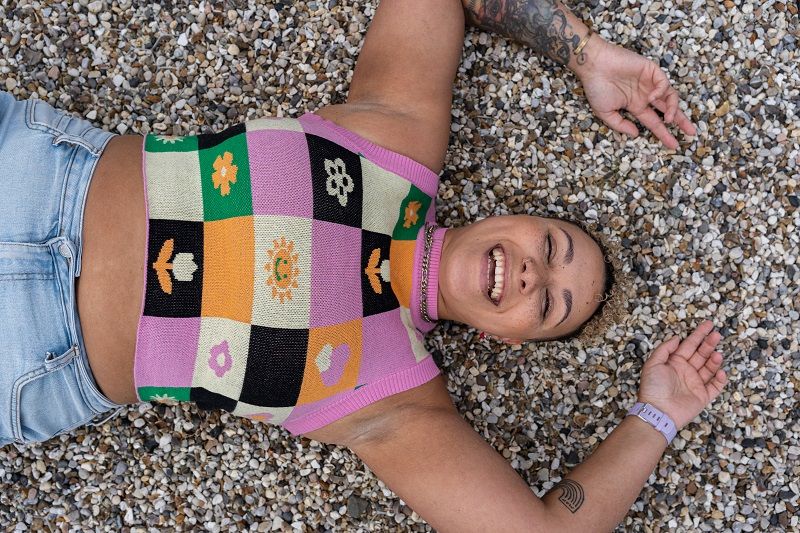Hiki challenges visual stereotypes of the autistic community plus...4 more super smart stock imagery based campaigns.
A snapshot look at a trending campaign with a curated pick of past campaigns that use a similar creative approach in some way.

#AutisticOutLoud | Hiki & Getty Images | Mindshare | 2023
Challenge the visual stereotypes of autistic people with a collaboration with Getty Images. Hiki and Getty Images have teamed up to launch #AutisticOutLoud, an initiative aiming to challenge visual stereotypes and promote authentic representation of the autistic community. Currently, the media often portrays autistic individuals in a limited and stereotypical manner, predominantly focusing on white males and presenting them as either childlike or geniuses. Hiki, the world's largest friendship and dating app for the autistic community, and Getty Images, want to change this narrative. The #AutisticOutLoud campaign features a curated gallery of images and videos, actively involving content creators and photographers who identify as autistic. This ensures an accurate and diverse portrayal of their experiences, while reshaping the representation of autistic individuals in media. The initiative is supported by a cross-agency WPP team, with a focus on creative branding and strategy. Getty Images will incorporate the content into their Disability Collection and Unsplash, enabling wider commercial use and fostering industry awareness.
Missing Stock | Mudi | Wunderman Thompson | 2022
Disguise missing people as stock imagery to increase the likelihood of missing people being found by loved ones. To revolutionize the search for missing individuals and provide hope in locating them quickly, Wunderman Thompson opted to replace traditional methods with a technology solution.
The concept, Missing Stock, introduced a free AI-driven image bank for brands to incorporate into their ad campaigns. Instead of using models, the image bank replaced their faces with those of missing people. The AI tool within the image bank accurately predicted aging and facial feature changes, significantly increasing the chances of finding these individuals.
Global and local brands passionately embraced the initiative, thereby enhancing the prospects of their discovery. Prominent brands like Ford, AB InBev, and Honda participated, resulting in over 14 million social media impressions and approximately $12 million in reach media. Additionally, through DNA tests facilitated by Missing Stock, the International Foundation for Reunion successfully reunited several individuals with their families.
Chickenstock | KFC | TBWA\RAAD | 2021
Give other chicken sellers access to KFC's stock images to prevent copies from looking bad. Perhaps unsurprisingly, KFC's product photos are a target for theft. Counterfeiters across the MENA region, from cities to villages, have been using familiar KFC's familiar food images in their establishments, from fried chicken to Zingers and Twisters. Unfortunately, there was little KFC could do to prevent this. What's worse is that these stolen photos were poorly replicated, with low resolution, stretching, inversion, distortion, and even pixelation. It damaged KFC's reputation and broke the brand team's heart! To address the issue, KFC and its agency TBWA\RAAD opted to lean into the problem by creating KFC Chicken Stock: a collection of high-resolution, tempting chicken images available for free download. The initiative was a finger-licking success, with over 4,378 downloads, 256,400 unique website visitors, and significant improvements in brand perception, including a 37% increase in "Modernity" and a 24% increase in "Likeability."
Adobe Stock Apparel | Adobe | Abby Priest | 2018

Embrace stock images people love to hate to show Adobe understands its users. In order to promote its royalty-free image service, Adobe launched a self-aware clothing line that celebrated the worst stock photos. The fictional collection poked fun at generic stock images and presented the idea that its library doesn’t contain the low-quality photography found on other sites.
Image Hack | Dove | Mindshare | 2017
Reveal the false beauty standards by flooding image searches with real women. In 2017, the widespread use of advertising dream worlds had created a false idea of what a beautiful woman should look like. Dove, along with its Danish agency Mindshare, wanted to change this from within by "hacking" the world's largest photo library, Shutterstock. Photographers from around the globe flooded Shutterstock with their own non-stereotypical images of beautiful women. On International Women's Day, Dove encouraged agencies and advertisers to incorporate these images into their ads. Impressively, 42 brands joined the cause, resulting in the download of 1729 images and generating a remarkable 40 million media impressions - all achieved on a shoestring budget of $10,000.
